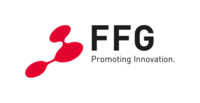Digital Product-Pass for Electronics.
Background
The circular economy is a resource-conserving production method that emphasizes the reuse, repair, refurbishment, and recycling of materials and products. The Circular Economy Action Plan (CEAP) is part of the Green Deal and works towards promoting circularity throughout a product’s life cycle. It is complemented by the Ecodesign for Sustainable Products Regulation (ESPR), which also encourages principles of the circular economy with the aim of raising product energy efficiency and making them more environmentally friendly. An important to tool to accomplish these goals is the Digital Product Passport (DPP) initiative, which sets out to share product information among stakeholders. Currently, it is only implemented for batteries but it will become more widespread and expanded to other product groups such as electronics and textiles. However, the DPP is still at an early stage of development; to unfold its potential and understand the challenges it entails, more research is needed.
Project Content and Aims
Implementing a Digital Product Passport (DPP) is challenging as everyone involved in the product lifecycle has to comply with the DPP regulations. Also, it requires significant modifications of the organizational and digital infrastructure. Therefore, research to profoundly understand the sector-specific regulatory, technological and organizational interdependencies of large-scale data sharing is urgently needed. Specifically, SMEs with limited legal, technological, and workforce capabilities would benefit from the knowledge gained through such research. In the DPP4E project, we embark on this endeavour and provide information that helps tackle the major challenges of implementing a DPP in the electronics sector:
- We identify the legal obligations that the ESPR and related standards impose on stakeholders throughout the electronics product lifecycle.
- We design and implement a corresponding robust and flexible data infrastructure for the generation, management and maintenance of DPPs, taking into account the identified legal obligations as well as the digital and technical capabilities of the specific stakeholders/companies.
- We examine governance, models, and policies that ensure seamless interoperability and smooth distributed data flows at the syntactic and semantic levels.
- We examine governance, models and policies for data access and data exchange that ensure sovereignty, security, transparency, nuanced usage control and compliance in trusted DPP data spaces.
Outcomes and Benefits
We design and implement a prototype of the DPP for the electronics industry. We demonstrate its viability under real life conditions using actual data for three different product types and their life cycles. The interdisciplinary project team makes it possible to explore the legal, technical and organizational aspects of a DPP. This is to the advantage of the companies involved as the knowledge accumulated during the project lays a solid foundation for coping with coming regulatory developments. They also benefit from enhanced traceability and interoperability and are put in the position to streamline design, procurement, production, and remanufacturing processes. This results in cost savings and an improved competitiveness.
- bee produced Gmbh (lead)
- Nexyo GmbH
- Augusta Buntmetalle GMBH
- Würth Elektronik GmbH
- Pidso GmbH
- WE GmbH
- UWK Universität für Weiterbildung Krems

